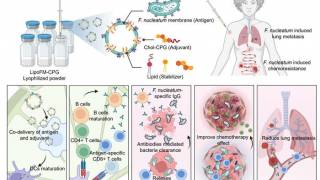Teenage Boys May Not Get Cancer Preventing Vaccine in UK

A decision not to vaccinate boys against a cancer-causing infection has attracted significant attention in the United Kingdom (UK).
The UK committee responsible for regulating vaccinations believes the uptake of the papilloma virus (HPV) vaccine among teenage girls has reached a sufficient level to protect boys from the sexually transmitted virus.
They say extending the vaccination program to include boys "would not be a cost-effective use of health service resources in the UK".
In their interim statement, the Joint Committee on Vaccination and Immunisation (JCVI) said the risk of HPV infection in boys has "already been dramatically reduced by the (success) of the girls program.”
"Therefore, most of the benefit to boys can be achieved through achieving high uptake in a girl's only vaccination program" the JCVI authors write.
“And these herd (immunization) effects will continue to have substantial impact".
Mary Ramsay, head of immunisation at Public Health England said, "While there are some additional benefits to vaccinating both males and females, the current models indicate that extending the programme to boys in the UK, where the uptake in adolescent girls is consistently high (over 85%), would not represent a good use of NHS resources."
This initial recommendation by JCVI will now be subject to a public consultation and a final decision will be made in October, 2017.
In the USA, the Centers for Disease Control and Prevention CDC) report that most human papillomavirus infections clear naturally, but persistent infections lead to cervical cancer in women.
HPV is a very common virus; nearly 80 million people are currently infected in the United States. About 14 million people, including teens, become infected with HPV each year.
According to the World Health Organization, cervical cancer is one of the most common cancers among women worldwide. Approximately 528,000 new cervical cancer cases and 266,000 deaths occurred in 2012 worldwide.
Human papillomavirus 16 and 18 are the most common among high-risk HPV types, and are responsible for approximately 70% of cervical cancer cases.
HPV cancers include cancer of the cervix, vulva, vagina, penis, or anus. HPV infection can also cause cancer in the back of the throat, including the base of the tongue and tonsils (called oropharyngeal cancer).
The Food and Drug Administration has approved these HPV vaccines in the USA:
- Merck's Gardasil
- Merck’s Gardasil 9
The CDC Vaccine Price List provides current vaccine contract prices and lists the private sector vaccine prices for general information.
Our Trust Standards: Medical Advisory Committee

























